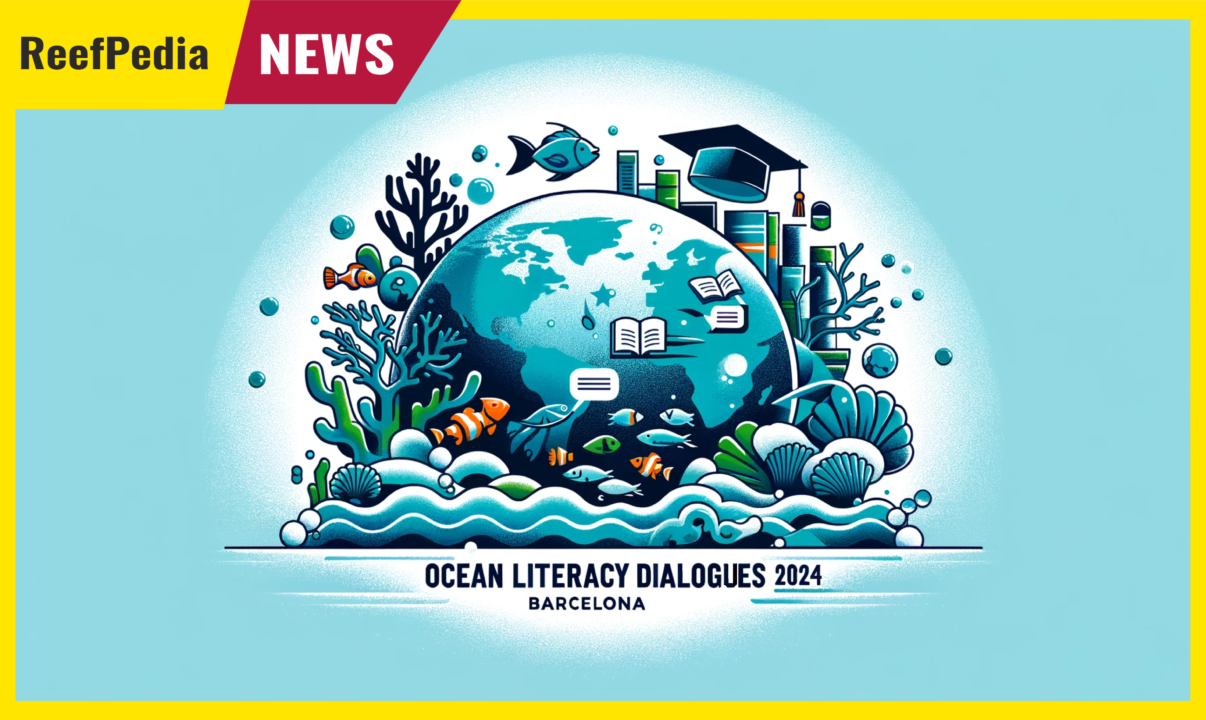In April 2024, the World Trade Center in Barcelona hosted the fifth edition of the Ocean Literacy Dialogues, coinciding with the UN Ocean Decade Conference.
The conference began with discussions on Blue Education, emphasizing the importance of Blue Schools and the Blue Curriculum in connecting youth with the ocean. Educational sessions highlighted that the curriculum should include not only academic learning but also emotional engagement with the marine environment and a more holistic approach. Participants were introduced to the Global Blue Schools Network and had the first meeting with national coordinators.
Discussions stressed the need for a unified yet flexible approach to integrating ocean literacy into school systems worldwide. International representatives, including the Angolan Minister of Marine Resources, Carmen dos Santos, emphasized the importance of international collaboration to ensure the effectiveness and sustainability of ocean education. Kogie Govender from the South African Environmental Observation Network highlighted the importance of field trips and practical activities to help students better understand ocean literacy, moving beyond traditional classroom teaching.
Innovative practices in ocean literacy were also discussed, focusing on integrating art and storytelling to make ocean science more accessible and engaging. This approach aims to break down the barriers of traditional scientific communication, creating a more inclusive, empathetic, and effective discourse around ocean science and conservation.
A significant addition to this year’s Ocean Literacy Dialogues was the satellite event of the UN Ocean Decade Conference; a symposium dedicated to “Exploring the Nexus of Strategic Ocean Communications and Ocean Literacy”. This event examined how strategic communication and ocean literacy can increase public engagement and action for ocean conservation. Maya Gabeira, UNESCO Champion for the Ocean and Youth, discussed the importance of using new and traditional media to strengthen ocean literacy.
The symposium also highlighted the importance of evidence-based communication strategies and identified the Ocean and Society Survey as a crucial tool for assessing public perception. Participants identified best practices and called for a unified approach to ocean literacy that incorporates the “JEDI” principles: justice, equality, diversity, and inclusion.
During the conference, a significant portion was dedicated to integrating diversity, equity, and inclusion into ocean education. Participants explored how to enhance inclusivity in this field. The Thalassophile project, led by Rada Pandeva in the UK, demonstrated methods to make ocean education accessible to people with disabilities, emphasizing the need for multisensory educational materials tailored to diverse needs.
Discussions also highlighted the connection between marine conservation and social justice, emphasizing that true ocean literacy includes understanding and addressing the human rights issues of those dependent on marine resources. This broader view encourages a more comprehensive approach to ocean education, considering the socio-economic realities of different communities.
The need for strong international partnerships was a recurring theme. Sharing best practices within the Global Blue Schools Network and collaborating on projects that integrate ocean education with art and digital technologies underscored the importance of collective efforts to promote ocean literacy worldwide.
Looking ahead, the conference set directions for future initiatives aimed at expanding the reach and depth of ocean literacy. These include enhancing digital platforms for resource sharing, establishing more innovative educational practices, and supporting financial strategies that strengthen sustainable ocean literacy projects globally.
The Ocean Literacy Dialogues in Barcelona marked a significant step forward for the global ocean education community. By combining the themes of education, innovation, inclusivity, and international cooperation, the conference outlined a vision of an integrated and empathetic global community united by a shared commitment to the oceans. These insights and initiatives promise to shape a more ocean-literate world, ready to face the ecological challenges of our time.
Source:
https://www.unesco.org/en/articles/ocean-literacy-dialogues-2024-ocean-decade-conference
About the author

Grzegorz Bubak
My fascination with marine aquariums began over two decades ago when I stumbled upon an article about this topic in a magazine. Since then, the underwater world has become my obsession and passion, shaping my everyday life. I started my adventure with marine aquariums with soft corals, which were my first step into this fascinating world. Over time, captivated by the diversity and beauty of SPS corals, I decided to focus on their cultivation, which continues to fill me with constant wonder.
Thanks to my experience and passion for marine aquariums, I am ready to share my knowledge and expertise with other enthusiasts in this field. I am happy to be part of the Reef Pedia community, which serves as an invaluable source of information for all marine aquarium lovers.

